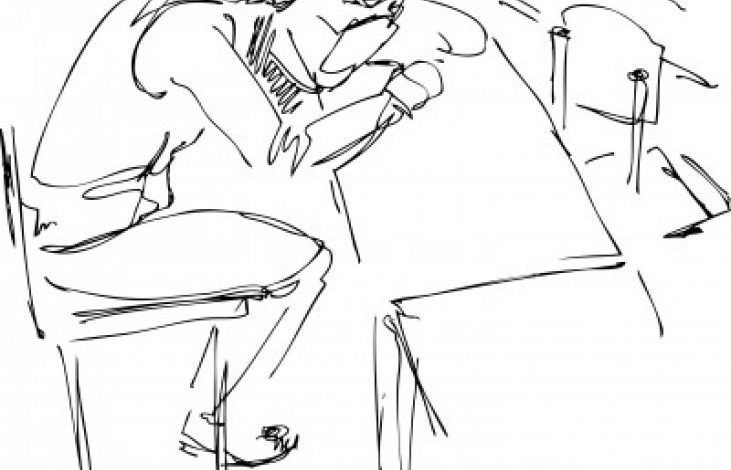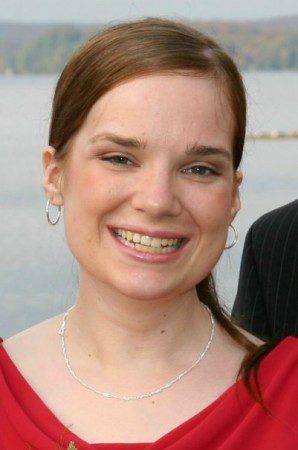
Employment and disability: a personal perspective
New DH contributor, Sarah Levis, a blogger from Canada shares a moving personal insight into her experience of trying to find employment and kindly offers some thoughts for others facing a similar journey.
Are you living with disabilities and trying to get into the workforce? Is it more difficult than you imagined it would be?
You are not alone. Many people with disabilities find it difficult to find employment that 1) they can comfortably do and 2) can be done in a workplace that’s flexible enough to accommodate their needs. Even in Canada, where I live, and where the federal government sometimes actively recruits people with disabilities for positions, breaking into the workforce rarely seems as simple as it seems it should be.
I learned this the hard way when I acquired physical disabilities at the age of 22. After a small stroke in a job interview, I was diagnosed with a congenital vascular formation in my brain called an arteriovenous malformation. After open-brain surgery to correct the malformation, I had a larger stroke that weakened my left side to the point of near-paralysis. It took months of in-patient rehabilitation and several years of out-patient rehabilitation before I felt strong and functional enough to even think about returning to the world of work, but I knew that it was something that I wanted to try.
I had a degree in Psychology and a diploma from a community college in Developmental Services. When I saw I the local School Board advertising for Supply Educational Assistants in the local paper, I knew that I was well-qualified for the job, except for one thing: my still-weak left arm would not allow me to assist with lifts and transfers for the students in wheelchairs.
I thought a great deal about what to do next, and the decision I made ultimately has formed my philosophy about looking for work as a person with disabilities:
“I might as well try and see how far I can get. I can always use interview practice, and the worst they can say is ‘No’.”
I submitted my resumé to the School Board, and was somewhat shocked to get a call requesting that I come in for an interview. I went in with my cane, convinced it would end there. But they hired me. They wanted a report from my doctor, but they hired me.
The doctor’s report was where it started to fall apart. I don’t know what about me that they’d seen in the interview had suggested that I’d be able to assist with lifts and transfers. In fact, we’d talked about why I couldn’t. But hearing it from the doctor seemed to take them by surprise. I got a call saying that they’d have to think about where they could use me in the schools, given my disabilities. They thought about it a long time before finally calling me again and telling me they’d probably only be able to use me on a very limited basis.
My psychiatrist, whose son had autism, agreed with them.
“It’s not a good job for you,” he said to me. “These kids move very quickly. You just can’t move that fast. You can’t do the lifts and transfers, and that’s a basic part of the job.”
I only got called for work a couple of times that first year.
However, the second year, a couple of the Educational Assistants that I supplied for got good reports about the work that I did. They started to request me when they were going to be away. The schools started to see that, yes, there were definitely things that I could not do, but that I was very good at the things I “could” do. They became willing to make accommodations for me.
By the third year that I was employed with the Board, I was being called in routinely. I was supervising kids on the playground that would “move quickly” and finding ways to work with it. I even spent a day in a kindergarten class. I was holding my own.
In the future, you might see me become even more ambitious, perhaps going back to school and earning a master’s degree. My end goal is to help people who are unable to find work because of their disabilities or cultural differences, and I feel as though a Master’s in Psychology with a special area of interest in workplace diversity could help me get there. With this degree, I could begin applying for jobs in human resource management, giving me the power to help build ethical organizations that embrace diversity in the workplace.
I said to my Dad once, when I surprised him by easily getting into the back of our Jeep, “See what happens when people let me try?” I was blaming him, jokingly. But the truth was that he’d never stopped me from trying to get in the back of the Jeep – I’d just never asked to try before, and it hadn’t occurred to him that I’d want to try.
I was lucky to work in a School Board where people were willing to let me try – for whatever reason, they hired me after the interview, and they decided to keep me on after they received my doctor’s report, even though I wasn’t able to carry out all the physical requirements of the job. It all moved more slowly than I would have liked, but they were willing to let me try as I showed that I worked hard to do a good job at the things I was able to do.
But it never would have come about if I’d not been willing myself to see what happened when I let myself try. I’d applied for a job for which I was qualified but for which I couldn’t perform all the duties. But who knew how close I could get to it unless I was willing to stick my neck out and see if they were at least grant me an interview?
What did I have to lose?
My point: Don’t be your own worst enemy in your job search. Even if you interview for a job and don’t get it, you can still use that experience to learn more for next time, if you choose to.
Be willing to let yourself try, and you may surprise yourself (and others) with what you end up doing.
Next article: The best job I ever had.
By Sarah Levis
Sarah publishes a blog called “Girl with the cane”, which you can visit by clicking here.

